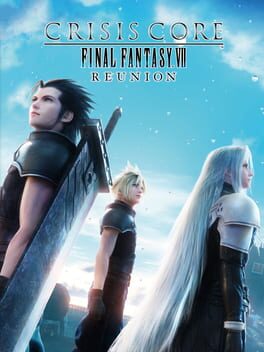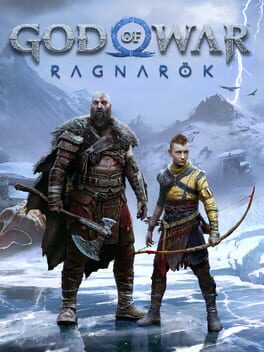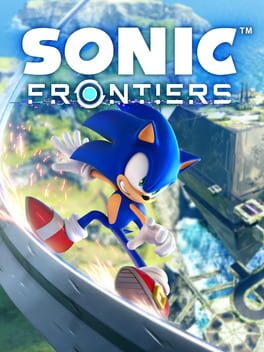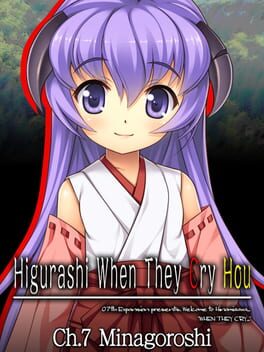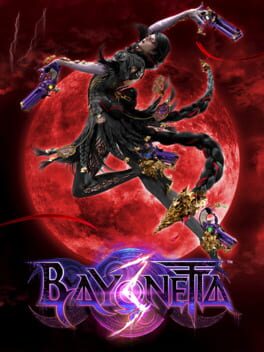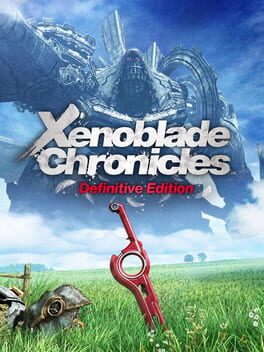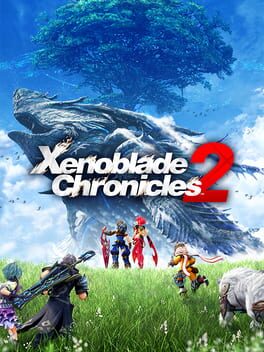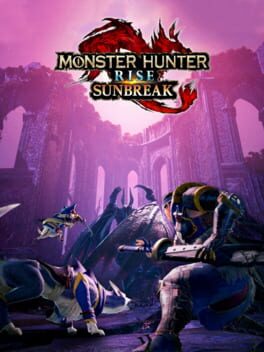KonaGrylls
2022
I was going to give this a 4.5 rather than a full 5, but the game is just full of so much love that it'd feel awful to do that.
Tunic is the game that's given me the most authentic and raw feeling of discovery I've felt since I was a kid. It feels scientifically generated to trigger that childlike sense of wonder, and is so inventive and interesting. Full of so many puzzles and so much intrigue, every single thing in the game is interesting, and every new object you find comes with questions and solutions.
I have some issues with some gameplay things- towards the end of the game there's questionable choices regarding combat that I didn't like, and it CAN be quite difficult (accessibility options available), but the core of the game is exploration, and it's perfected.
There's really not a lot to say without spoiling such an incredible experience (I think if you're going to play this game, it should absolutely be blind), but I can highly recommend it to anyone who wants to feel the feeling that made them fall in love with gaming as a child. And after you beat the game and do everything you can find to do, you might want to google the more deeper level secrets the community found- it's really amazing what's in this game.
Tunic is the game that's given me the most authentic and raw feeling of discovery I've felt since I was a kid. It feels scientifically generated to trigger that childlike sense of wonder, and is so inventive and interesting. Full of so many puzzles and so much intrigue, every single thing in the game is interesting, and every new object you find comes with questions and solutions.
I have some issues with some gameplay things- towards the end of the game there's questionable choices regarding combat that I didn't like, and it CAN be quite difficult (accessibility options available), but the core of the game is exploration, and it's perfected.
There's really not a lot to say without spoiling such an incredible experience (I think if you're going to play this game, it should absolutely be blind), but I can highly recommend it to anyone who wants to feel the feeling that made them fall in love with gaming as a child. And after you beat the game and do everything you can find to do, you might want to google the more deeper level secrets the community found- it's really amazing what's in this game.
I never played the original Crisis Core on PSP, but I've heard good things about it.
After finishing it, I can say I enjoyed the story and the gameplay was enjoyable enough to take me through the game. There's a HUGE amount of grinding you're able to do, but I dont think any was really necessary on normal mode. I finished the story mode doing all the side missions I was strong enough to beat, which took me to 7* difficulty and 48% completion, so I'm certain there's plenty of challenging side content for after you beat the game.
I thought a lot of mechanics were actively damaging my experience when I tried to engage with them, like relying on buster sword stance to increase my proficiency or using materia I didn't like to fuse new ones.
I definitely recommend the game to any Final Fantasy fans (7 in particular), but I would say to play how you want, don't force yourself to engage with the systems if you don't want to like I did, because there's no worthwhile payoff.
After finishing it, I can say I enjoyed the story and the gameplay was enjoyable enough to take me through the game. There's a HUGE amount of grinding you're able to do, but I dont think any was really necessary on normal mode. I finished the story mode doing all the side missions I was strong enough to beat, which took me to 7* difficulty and 48% completion, so I'm certain there's plenty of challenging side content for after you beat the game.
I thought a lot of mechanics were actively damaging my experience when I tried to engage with them, like relying on buster sword stance to increase my proficiency or using materia I didn't like to fuse new ones.
I definitely recommend the game to any Final Fantasy fans (7 in particular), but I would say to play how you want, don't force yourself to engage with the systems if you don't want to like I did, because there's no worthwhile payoff.
2022
Genuinely an incredible game start to finish. I could list out things that could be better (maybe better loot in the overworld, or grander scale to bosses?) but it'd just be nitpicking to find the flaws in a game that doesn't really have many. The story was great, the combat was great, the side content (postgame in particular) was incredible, and I don't think I've ever left a game feeling so satisfied. Both the rebooted God of War games are absolute must plays in my mind.
2022
While not a great game itself, a very promising future for Sonic as a franchise.
I'll start with the things I liked. The open world (while not actually being very free, progression is linear) is fun to move around in. Sonic has a lot of very expressive ways to move around in the world, and the game gives you nonstop opportunities to hop on little 2-3 second long stage element setpieces to collect items you need to progress. Combat is deeper than expected, and there's a lot of powerful moves you can use to kill enemies quickly. The main bosses are cool visual spectacles and usually enjoyable to fight as well.
The story is also better than expected and I enjoyed the characters.
For things that I didn't like, first of all the game is incredibly ugly to look at. It's really an elephant in the room when talking about the game. Draw distance is about a 10 meter circle around sonic, quality of models and textures is unimpressive, animations look really stilted and mechanical (when they aren't glitching) and the open world itself looks like a complete mess. Most of this game is a very generic looking field with random rails and springs everywhere. Why couldn't the world be as highly stylized as a sonic zone?
The more traditional Sonic levels you can access from the open world were a massive disappointment for me as well. There's around 36 of these levels, with only 4 "flavors". What I mean is that there's 36 unique levels but only 4 visually distinct areas: Green Hill, Chemical Plant, Angel Island, and City Escape. The result is that most of the levels blend together, and towards the end I just stopped playing them because I knew I saw pretty much everything.
Then I have plenty of minor nitpicks. The progression doesn't feel great, you essentially just run around and jump on things until you can watch a story event. The design of a lot of setpieces can result in you being locked in a 2d setpiece when you don't want to be, or being sent backwards from a boost pad you didn't expect. There's a few minigames and to be honest I didn't like a single one of them, especially the hacking minigame, and there's a particularly horrifying surprise about that minigame in The End.
Essentially, this Sonic is a great concept or blueprint for the series going forward. I imagine the next game in the series is going to be very good, assuming they take feedback from the shotgun spread of ideas in this game and refine what people liked. I wouldn't recommend anyone who isn't already a series fan to buy this game.
I'll start with the things I liked. The open world (while not actually being very free, progression is linear) is fun to move around in. Sonic has a lot of very expressive ways to move around in the world, and the game gives you nonstop opportunities to hop on little 2-3 second long stage element setpieces to collect items you need to progress. Combat is deeper than expected, and there's a lot of powerful moves you can use to kill enemies quickly. The main bosses are cool visual spectacles and usually enjoyable to fight as well.
The story is also better than expected and I enjoyed the characters.
For things that I didn't like, first of all the game is incredibly ugly to look at. It's really an elephant in the room when talking about the game. Draw distance is about a 10 meter circle around sonic, quality of models and textures is unimpressive, animations look really stilted and mechanical (when they aren't glitching) and the open world itself looks like a complete mess. Most of this game is a very generic looking field with random rails and springs everywhere. Why couldn't the world be as highly stylized as a sonic zone?
The more traditional Sonic levels you can access from the open world were a massive disappointment for me as well. There's around 36 of these levels, with only 4 "flavors". What I mean is that there's 36 unique levels but only 4 visually distinct areas: Green Hill, Chemical Plant, Angel Island, and City Escape. The result is that most of the levels blend together, and towards the end I just stopped playing them because I knew I saw pretty much everything.
Then I have plenty of minor nitpicks. The progression doesn't feel great, you essentially just run around and jump on things until you can watch a story event. The design of a lot of setpieces can result in you being locked in a 2d setpiece when you don't want to be, or being sent backwards from a boost pad you didn't expect. There's a few minigames and to be honest I didn't like a single one of them, especially the hacking minigame, and there's a particularly horrifying surprise about that minigame in The End.
Essentially, this Sonic is a great concept or blueprint for the series going forward. I imagine the next game in the series is going to be very good, assuming they take feedback from the shotgun spread of ideas in this game and refine what people liked. I wouldn't recommend anyone who isn't already a series fan to buy this game.
2020
Omori is a decently lengthy turn-based RPG with a very heavy amount of aesthetic and stylization.
Without giving spoilers, this game is rated M for a reason. Mental illness, self harm, and death are all depicted uncompromisingly. There are also bits of horror elements. If you're squeamish to any of those things, it might be better off watching a playthrough (so you can skip sections) or just skipping the game entirely.
As for the horror elements, a lot of reviewers I've seen talk about Omori as if it's a horror game, when that's a bit misleading of the content. Omori is a turn based RPG with light horror elements, there's a good bit of sections that might be scary or cause the player anxiety, but they're mostly confined to a few sections, while the rest of the game is a much more basic RPG.
With that general stuff out of the way, I'll start with gameplay. Omori uses a standard turn-based battle system with a 4 player party. All party members select attacks first, then turn order is decided based on the speed stat. Each party member has 4 ability slots, and you can change them out of combat. The most important thing about the gameplay is the 'emotions' system. Certain moves can change party members or enemy's emotions, which creates a rock paper scissors level to the battle. For example, if there's an enemy that's happy, I can use an ability to make him sad, then an item to make my party all angry, which would buff our attacks on them. Effectively, it works like powerful buffs with a unique flavor. I thought the combat was decent, although a little basic and not particularly engaging. I skipped most battles outside of required bosses.
Next is the areas/dungeons. This was my biggest problem with the game, since none of these are plot relevant. There are three main dungeons, and all of them are essentially just 5 or so hours of filler. They have stories, but it's more of an ongoing story for the dungeons themselves, and has nothing to do with the plot of the game, and none of your party members develop during these dungeons.
The story is the last big section, but it's definitely better to go in knowing nothing and enjoy it. There's a lot of lore and story to digest, even if it's given to you at a very strange pace. When you're finished with the game, you'll have a lot to think about and discuss with others, which is likely why this game got such a community behind it.
In the end, Omori was an enjoyable game with a story I really appreciated. I thought all of the middle was getting to be a slog, but the game ramps up in the finale and leaves you feeling satisfied. Know what you're going into (a 20 hour RPG with a dark plot counterbalanced by lighthearted dungeons,) and you'll end up having a great time with this game.
Without giving spoilers, this game is rated M for a reason. Mental illness, self harm, and death are all depicted uncompromisingly. There are also bits of horror elements. If you're squeamish to any of those things, it might be better off watching a playthrough (so you can skip sections) or just skipping the game entirely.
As for the horror elements, a lot of reviewers I've seen talk about Omori as if it's a horror game, when that's a bit misleading of the content. Omori is a turn based RPG with light horror elements, there's a good bit of sections that might be scary or cause the player anxiety, but they're mostly confined to a few sections, while the rest of the game is a much more basic RPG.
With that general stuff out of the way, I'll start with gameplay. Omori uses a standard turn-based battle system with a 4 player party. All party members select attacks first, then turn order is decided based on the speed stat. Each party member has 4 ability slots, and you can change them out of combat. The most important thing about the gameplay is the 'emotions' system. Certain moves can change party members or enemy's emotions, which creates a rock paper scissors level to the battle. For example, if there's an enemy that's happy, I can use an ability to make him sad, then an item to make my party all angry, which would buff our attacks on them. Effectively, it works like powerful buffs with a unique flavor. I thought the combat was decent, although a little basic and not particularly engaging. I skipped most battles outside of required bosses.
Next is the areas/dungeons. This was my biggest problem with the game, since none of these are plot relevant. There are three main dungeons, and all of them are essentially just 5 or so hours of filler. They have stories, but it's more of an ongoing story for the dungeons themselves, and has nothing to do with the plot of the game, and none of your party members develop during these dungeons.
The story is the last big section, but it's definitely better to go in knowing nothing and enjoy it. There's a lot of lore and story to digest, even if it's given to you at a very strange pace. When you're finished with the game, you'll have a lot to think about and discuss with others, which is likely why this game got such a community behind it.
In the end, Omori was an enjoyable game with a story I really appreciated. I thought all of the middle was getting to be a slog, but the game ramps up in the finale and leaves you feeling satisfied. Know what you're going into (a 20 hour RPG with a dark plot counterbalanced by lighthearted dungeons,) and you'll end up having a great time with this game.
One of the final chapters of a so far incredibly high quality visual novel. Unfortunately, this chapter isn't as outstanding as most of the others, primarily because the answer of a mystery will never be as good or interesting as the mystery. That isn't to say that the game is bad, makes the other chapters worse, or makes the series less worth playing.
2022
I'm just gonna get it out of the way so I don't focus on it in the review- I didn't like the story at all and I don't think there was really a single redeeming aspect of the plot. It says nothing about any characters including the new ones it adds and kinda just weighs down everything else.
With that out of the way, I thought Bayonetta 3 was overall pretty good. I liked the more open area design and thought it was a much better way to seek out hidden verses than the old linear design.
The levels themselves were a little disappointing (in a game about crossing the multiverse as a demon sunmoning witch, your best idea for levels is 4 real world cities??)
Enemy variety was about as good as you'd expect from the series, my only real issue being that I personally don't like the design of the new enemy type over Angels, but I doesn't matter much.
The combat is the most important part, and I thought it was done pretty well. It's closer to Bayonetta 2 than 1, but has a lot more options available. The game is honestly overflowing with combat mechanics and combinations, so if you care about getting good you could probably sink a lot of time into perfecting your combos. That said, as a casual player who just went through, a lot of it also felt very superfluous, partially because the game on normal difficulty is much easier than the last two on normal. That basically means if you take advantage of all the systems, you'll absolutely steamroll through the game so consider bumping up to hard if you care about improving.
There's also a lot of optional unlocks and things to do for 100% on top of getting platinum medals, so if you enjoy the ~15hr campaign there's plenty of replayability for you too.
Overall- Bayonetta 3 is a mess, but it's a fun mess that I'd recommend to fans of Character Action games
With that out of the way, I thought Bayonetta 3 was overall pretty good. I liked the more open area design and thought it was a much better way to seek out hidden verses than the old linear design.
The levels themselves were a little disappointing (in a game about crossing the multiverse as a demon sunmoning witch, your best idea for levels is 4 real world cities??)
Enemy variety was about as good as you'd expect from the series, my only real issue being that I personally don't like the design of the new enemy type over Angels, but I doesn't matter much.
The combat is the most important part, and I thought it was done pretty well. It's closer to Bayonetta 2 than 1, but has a lot more options available. The game is honestly overflowing with combat mechanics and combinations, so if you care about getting good you could probably sink a lot of time into perfecting your combos. That said, as a casual player who just went through, a lot of it also felt very superfluous, partially because the game on normal difficulty is much easier than the last two on normal. That basically means if you take advantage of all the systems, you'll absolutely steamroll through the game so consider bumping up to hard if you care about improving.
There's also a lot of optional unlocks and things to do for 100% on top of getting platinum medals, so if you enjoy the ~15hr campaign there's plenty of replayability for you too.
Overall- Bayonetta 3 is a mess, but it's a fun mess that I'd recommend to fans of Character Action games
A very strong conclusion to a very strong trilogy. Xenoblade Chronicles 3 doesn't wallow in its past or act as a direct continuation of Xenoblade 1 or 2, instead it stands on its own two feet as its own story, paying homage to the other games in meaningful ways.
The characters are by far the strongest in the series, and the combat is free and highly customizable, letting anyone set up the party they feel most comfortable with. The story hits the same emotional highs Xenoblade is known for, and avoids a lot of the more 'trope filled' scenes that I found out of place in Xenoblade 2.
On the other hand, the story this time feels the least 'Xeno' in the franchise, with no major twists or reveals that shake the foundation of the game and make you reevaluate the world. The antagonists have a strange saturday-morning-cartoon energy that feels a little out of place as well. The combat, while being incredibly free and customizable, also sacrifices the depth of Xenoblade 2's combat to get there, and by the end can feel a bit like a slog, combined with the incredibly long time to kill of bosses.
Most of my other complaints are more like minor nitpicks that would vary a ton person to person, but all around, Xenoblade Chronicles 3 is a must play for JRPG fans, even if they haven't played the rest of the series.
The characters are by far the strongest in the series, and the combat is free and highly customizable, letting anyone set up the party they feel most comfortable with. The story hits the same emotional highs Xenoblade is known for, and avoids a lot of the more 'trope filled' scenes that I found out of place in Xenoblade 2.
On the other hand, the story this time feels the least 'Xeno' in the franchise, with no major twists or reveals that shake the foundation of the game and make you reevaluate the world. The antagonists have a strange saturday-morning-cartoon energy that feels a little out of place as well. The combat, while being incredibly free and customizable, also sacrifices the depth of Xenoblade 2's combat to get there, and by the end can feel a bit like a slog, combined with the incredibly long time to kill of bosses.
Most of my other complaints are more like minor nitpicks that would vary a ton person to person, but all around, Xenoblade Chronicles 3 is a must play for JRPG fans, even if they haven't played the rest of the series.
One of my all time favorite games, remastered for Switch. It has plenty of flaws, such as a strange attitude towards sidequests and really obtuse mechanics such as gem crafting, but this game is pure quality from start to finish with one of the strongest stories you can find in a video game. This edition of the game adds a lot of quality life changes, and an epilogue that's nothing particularly special, but fun if you're not ready to say goodbye to Shulk and Melia yet.
2015
Xenoblade Chronicles 2 has a deep and rewarding combat system and one of the more powerful emotional stories in gaming. It works as a perfect sequel to Xenoblade Chronicles 1, giving players of that game additional lore that strengthens both games greatly, while managing to make the player not feel like they've missed anything if they started on this one. However, the game is heavily weighed down by questionable design choices like needing field 'skills' to navigate the world, a gacha mechanic for obtaining weapons, enemies that never take advantage of the deep combat system, and cutscenes in the first three quarters that fit more in a seasonal anime than an emotional journey to find Elysium.
Sekiro is that once in a lifetime game that manages to do nearly every single thing perfectly. Many people may be put off by the parry focused combat or lack of customization for your character, but if you accept Sekiro for what it tried to be and not what you wanted Fromsoft to make, you'll have an unforgettable experience.
2015
2022

